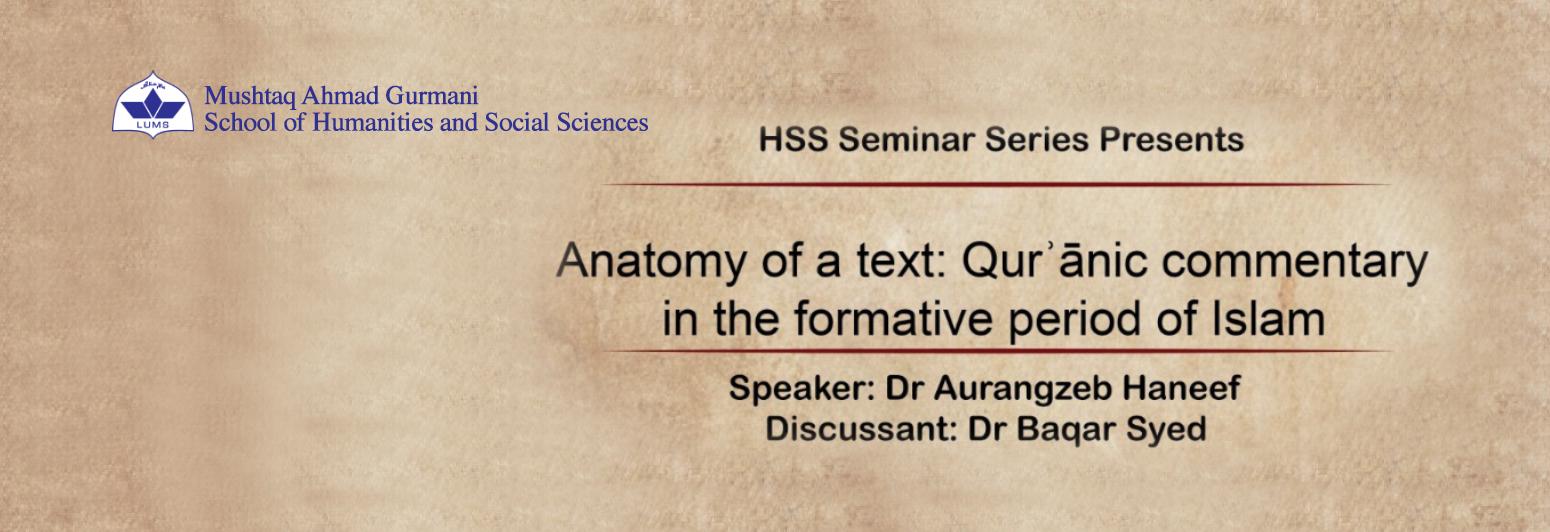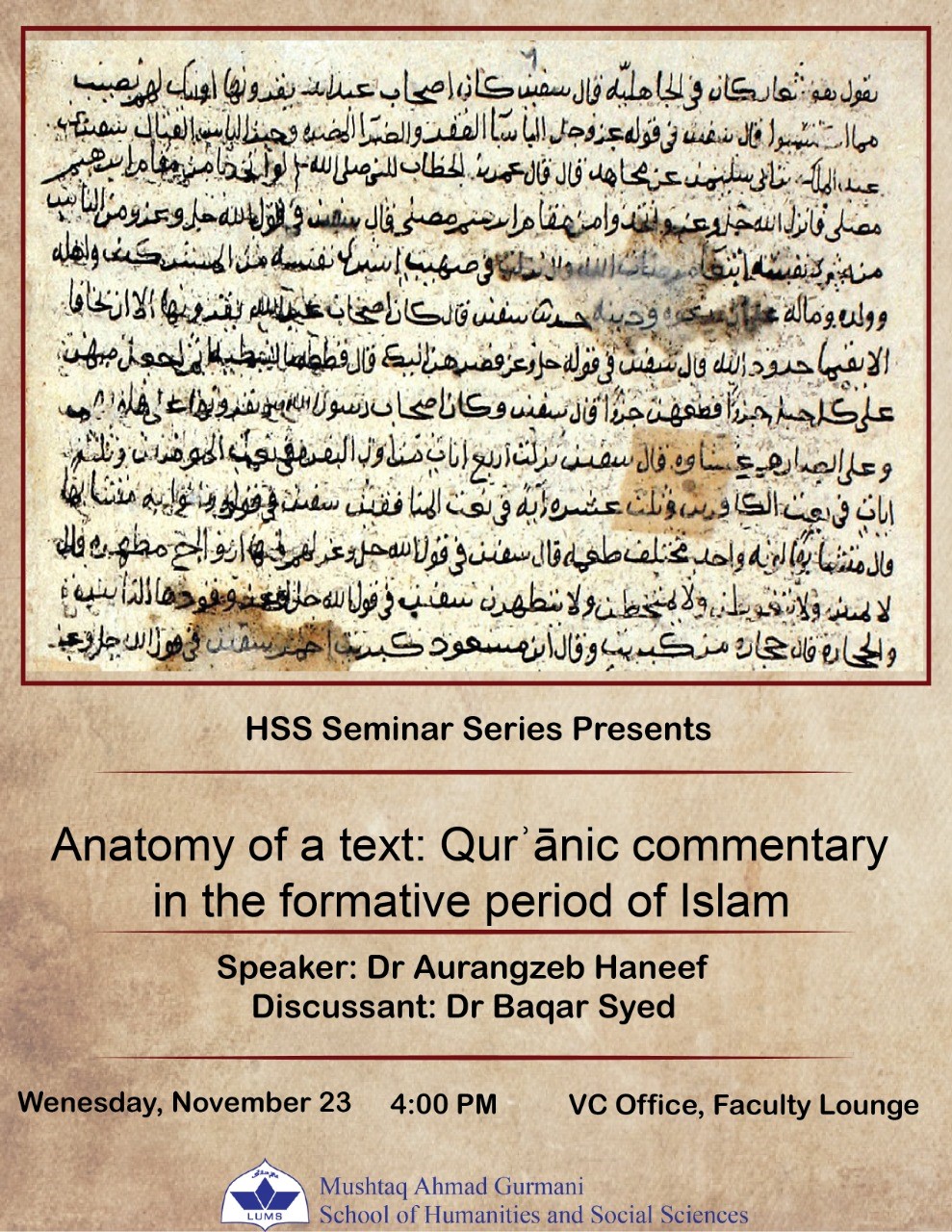
November 23, 2022
The seminar presents the case of a previously unknown and fragmentary manuscript in Arabic attributed to a rather prominent scholar, Sufyān al-Thawrī (d. 171 AH/778 CE), who was active in the second century of Islam. The manuscript contained a partial commentary on some Qurʾānic verses. The research shows how establishing the origins of this document and determining the character of the text, using textual-historical methods, help us reconstruct what the Qurʾānic commentary might have looked like beyond the recorded contents of the text.
Speaker’s Bio
Dr. Aurangzeb Haneef will be joining LUMS in January 2023 as an Assistant Professor in the Study of Religion. He has a doctorate in Islamic and Middle Eastern Studies from Edinburgh and a Master of Theological Studies from Harvard and is primarily a scholar of Islamic Intellectual History with a special focus in the Formative and early Classical periods; namely, the first four centuries of Islam.
On a macro level, his research includes themes such as transmission of knowledge, oral and written text, scripture and its interpretation, among others. On a micro level, to a significant degree, his focus has been on Qurʾān and its commentary tradition (Tafsīr). He is also interested in the intersection of scriptural interpretation and the themes of violence, peacebuilding, and the ecology in the modern period.
Discussant
Baqar Syed's PhD dissertation, "Ibn Khaldūn: His Idea of History and its Reception in South Asia" is an intellectual biography of the philosophical historian 'Abd al-Raḥmān Ibn Khaldūn (1332–1406). In addition to rethinking Ibn Khaldūn's innovative ideas in their intellectual context, Syed offers a detailed account of his forgotten Muslim readership in colonial South Asia.




















